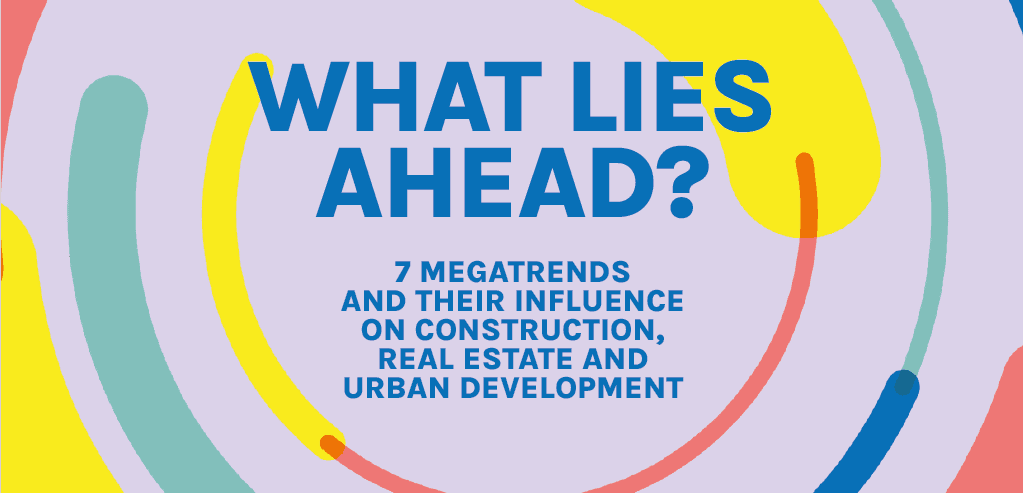
How much will the ecological transition cost the construction industry?
2 minutes of reading
in partnership with


In the last segment of its sixth activity report, the GIEC specifies very clearly that on the economic level, the ecological transition will prove less expensive for the global economy than if we do nothing. Several sectors are highly exposed to this issue, in particular transport, energy and construction. But acting, how much will it cost? The subject is a complex one but initial estimates are starting to be seen.

Construction contributes 18% to national greenhouse gas emissions according to a report by the Higher Council for the Climate published at the end of September 2022. Behind the transport sector, agriculture and industry, it is the sector with the fourth highest impact in our polluting emissions. It thus occupies a capital position in France’s emission reduction commitments. Public objectives in this matter are, moreover, ambitious: the National Low Carbon Strategy forecasts a reduction of 50% in GHG emissions from the sector by 2030.
A transformation which involves various committed levers over the last few years, such as the adoption of the RE2020 environmental regulations, for example. The aim of the latter is to “pursue the improvement of energy performance and comfort of constructions, while reducing their carbon impact”. It aims to further develop the use of biosourced materials and to take into consideration all emissions from construction throughout its lifecycle and increase the sustainability of new build. While noting that in France, new build only accounts for 1% annually of the construction fleet. The ecological transition of construction will thus also entail an improvement of the sector’s practices (eco-conception, reuse or recycling of materials) and one priority: energy renovation. In particular the renovation of the eight million power-hungry homes, known as “energy sieves”.
The topic of energy renovation of homes is, moreover, one of the government’s clear priorities which has notably flagged up a part of the France Restart plan in this direction: Four billion euros for public buildings, four billion euros for private homes and 700 million euros for social housing. A topic which obviously requires much investment. The professional construction federations, such as the Artisan and small construction companies’ confederation (Capeb) and the French Construction Federation (FFB) thus estimate the cost of total renovation of a home at between 25,000 and 77,000 euros.
According to the Carbone 4 consultancy firm, the introduction of works into these homes, associating insulation of the walls and substitution of end-of-life fossil-fuel heating by low carbon energy, would however contribute 30% to achieving France’s 2030 objective. In existing buildings, the measures studied by Carbone 4 for energy renewal (installation of a water/air heat pump or connection to a heat grid and insulation of the walls) would provide a saving of 35 million tonnes of CO2 for an additional cost of between €120 and 220 excl, VAT per tonne of CO2 avoided, compared with the renewal of a gas boiler. Their analysis also demonstrates the economic interest of these solutions for new build.
Subsidies are obviously welcome, but do not reflect the full cost represented by the ecological transition for stakeholders in the construction industry.
As for its part, the National Public Works Federation (FNTP) carried out a large-scale study in 2021, under the auspices of the Utopies and Carbone 4 firms with the French economic situation observatory (OFCE), in order to estimate the cost of ecological transition for the sector.
Two scenarios were estimated by the study’s authors: one scenario of sobriety and another more technophile. In both cases the costs are high: 16.2 billion euros per year for the sobriety scenario, i.e 486 billion euros between now and 2050. For the technophile scenario, the cost is estimated at 29.9 billion euros per year, 897 billion euros between now and 2050.
Sums which should obviously be placed alongside the cost of climatic inaction which could be, on a global scale, 1,700 billion dollars per year between now and 2025 according to a study carried out by the Institute for Policy Integrity of the University of New York involving 738 economists. More recently it is the GIEC itself, in the last segment of its sixth report, which specified that “the global economic benefit of limiting warming to 2°C would exceed the cost of attenuation in most of the publications evaluated”. In other words, investing massively in the ecological transition will provide greater benefits than if we did nothing.
Thus, as governments commit to reducing their emissions, new ways of calculating the cost of combating climate change will appear. Princeton University, for example, estimates that USA will have to invest 2,500 billion dollars (or 11% of its GDP) between now and 2030 to be able to achieve the net zero objective by 2050. For its part, the European Commission speaks of an investment of €3,500 billion over the next ten years (or 25% of GDP).
More reading
Read also



What lies ahead? 7 megatrends and their influence on construction, real estate and urban development
Article
20 minutes of reading

Energy
in partnership with


‘Paris at 50°C’: a fact-finding mission to prepare Paris for future heatwaves
Article
2 minutes of reading

